Abstract
The efforts expended by pediatricians in a variety of private practice settings to educate mothers of first-born children about child behavior and development were examined in relation to various outcome measures of mother and child functioning over a time period of one-and-a-half years. Mothers learned more about child development in group settings than in solo practice settings, but differences between medical groups with and without nurse practitioners were not significant. Mothers receiving care from pediatricians who made at least a moderate effort to teach, learned more about child development, described more use of positive contact with their children, and felt they were helped more in their childrearing efforts than did mothers receiving care from pediatricians who made little effort to teach. However, there were no significant differences in measures of the child's developmental status related to physician teaching input, and mothers exposed to higher levels of teaching input reported more behavioral problems with their children. The most important predictor of the child's developmental status at 18 months of age was the amount of positive contact between mother and child at one year. It is suggested that the effects of changing the frequency of well-child visits on the mothers' interaction patterns with their children and on their feelings of being supported by the physician be ascertained before making recommendations about the optimal number of such visits.
Full text
PDF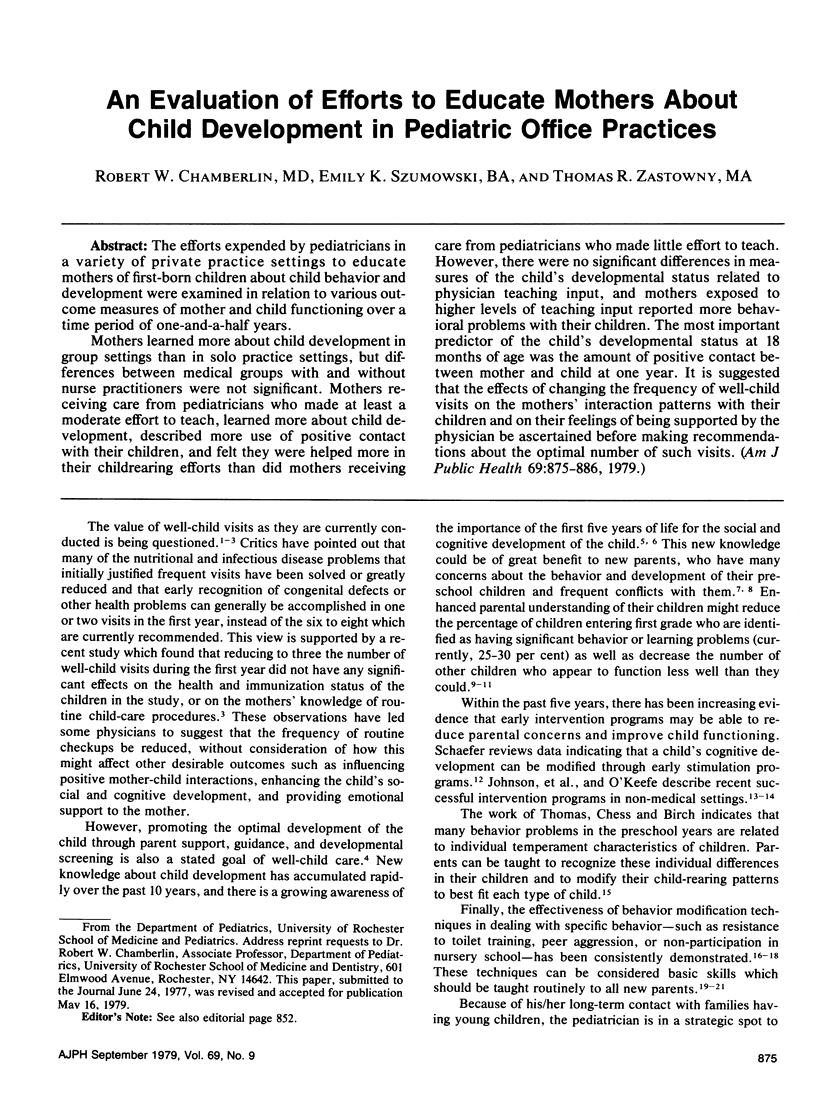
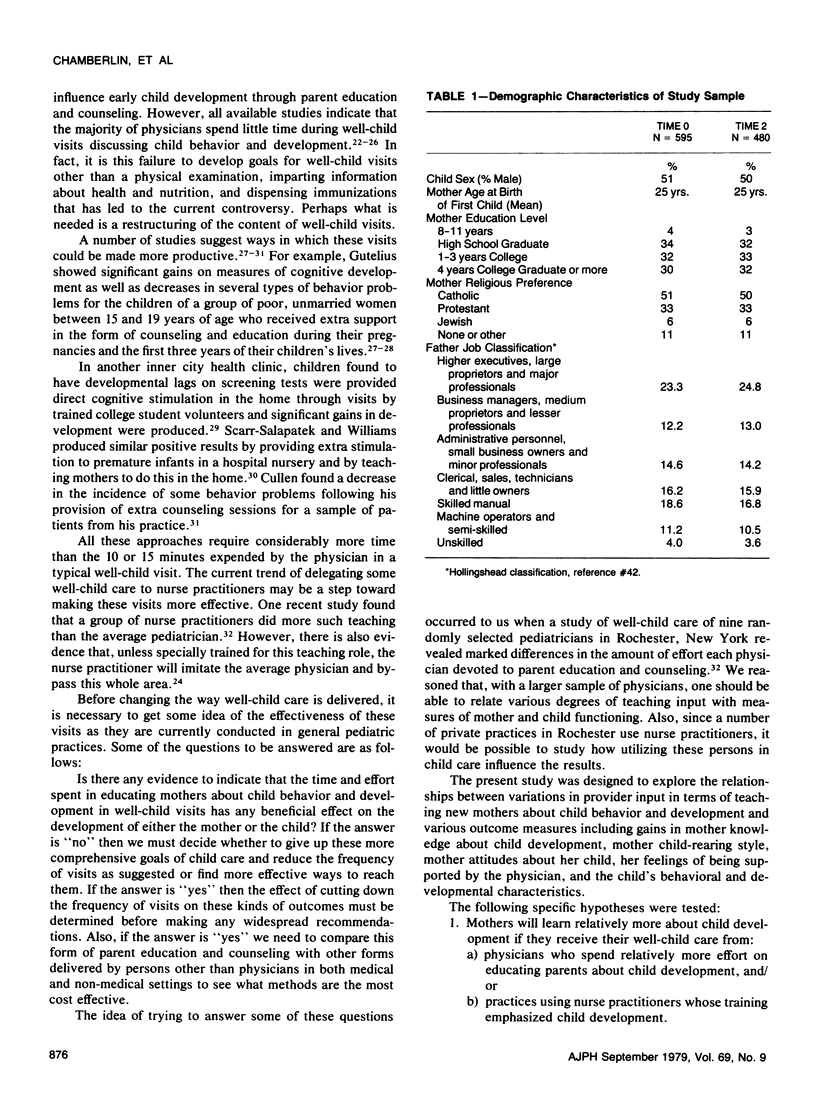
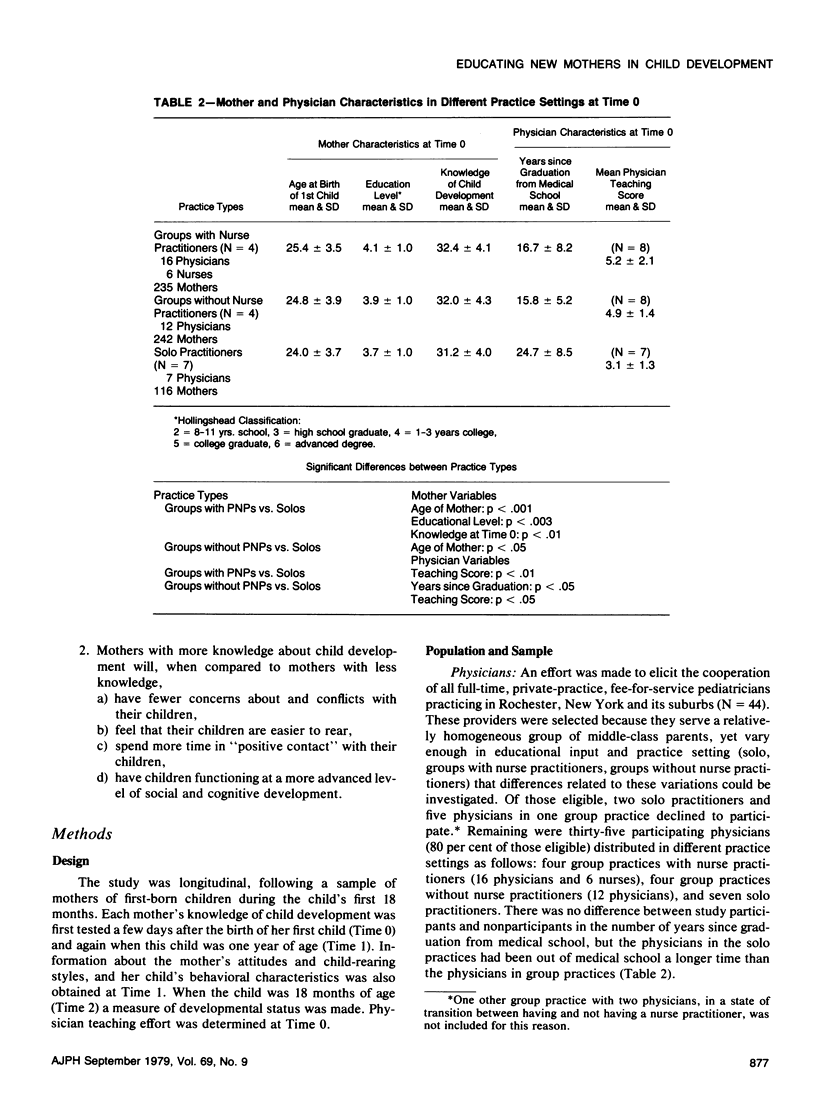
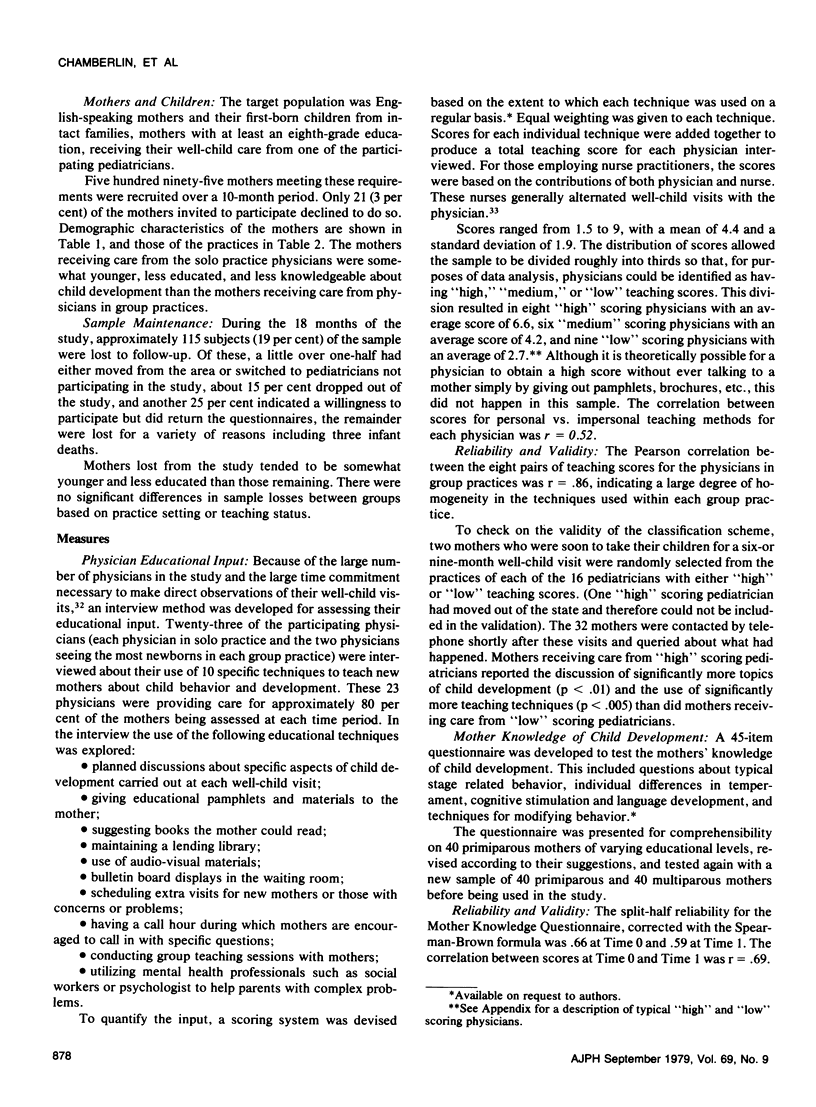
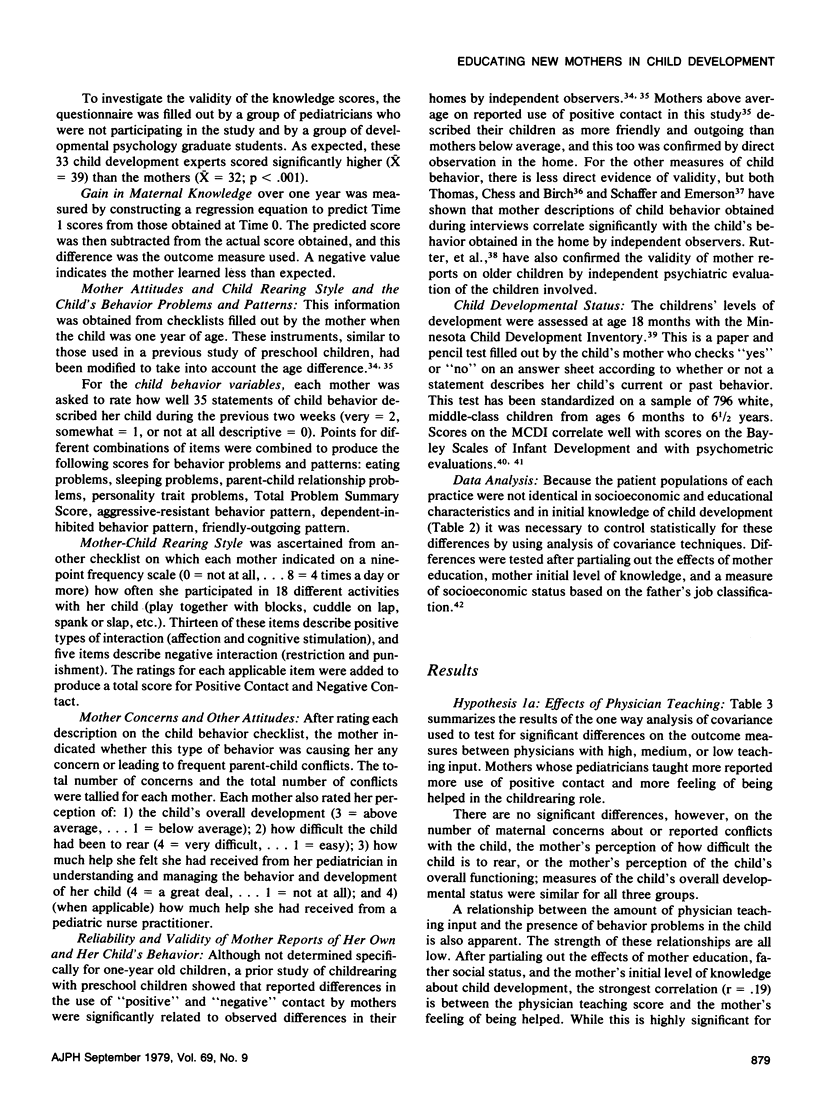
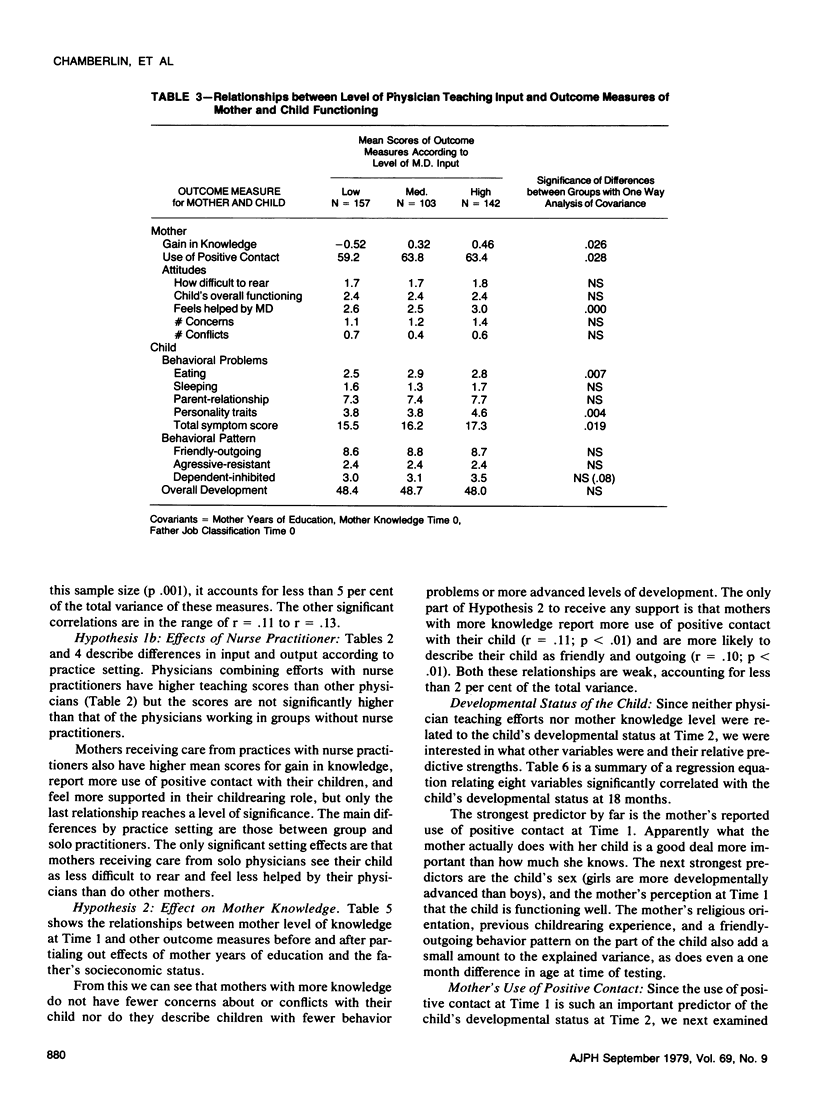
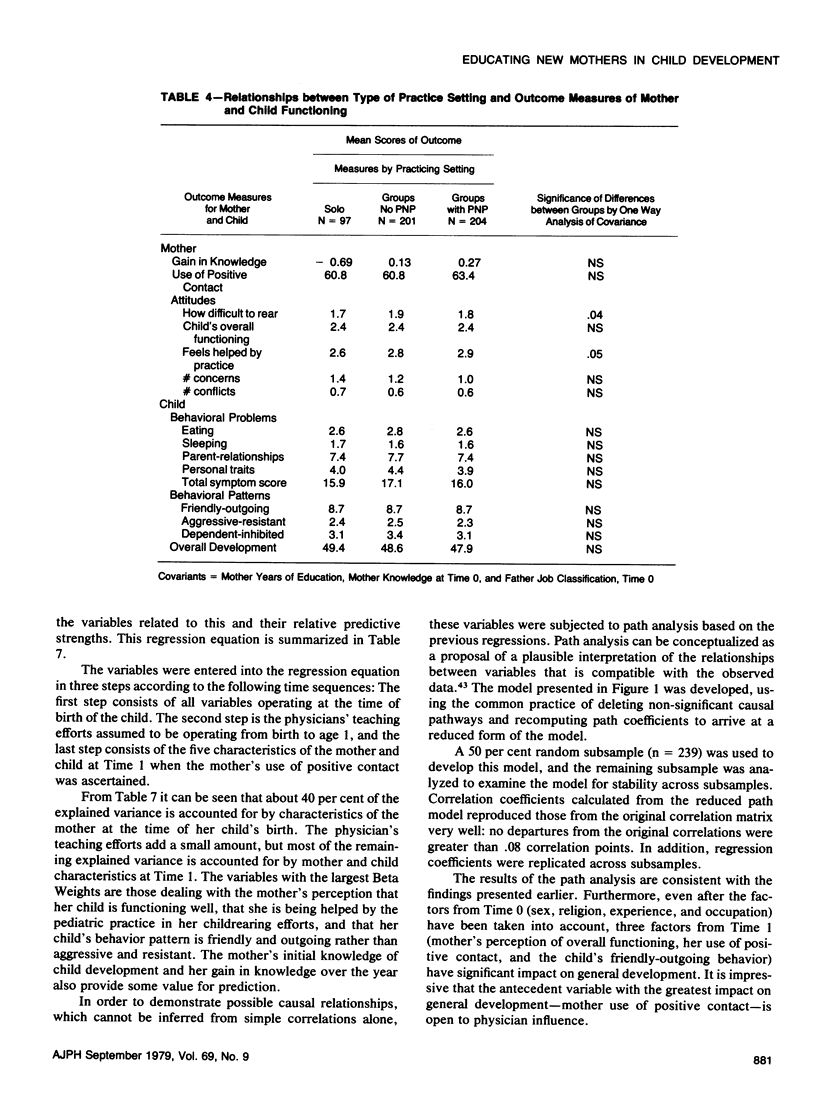
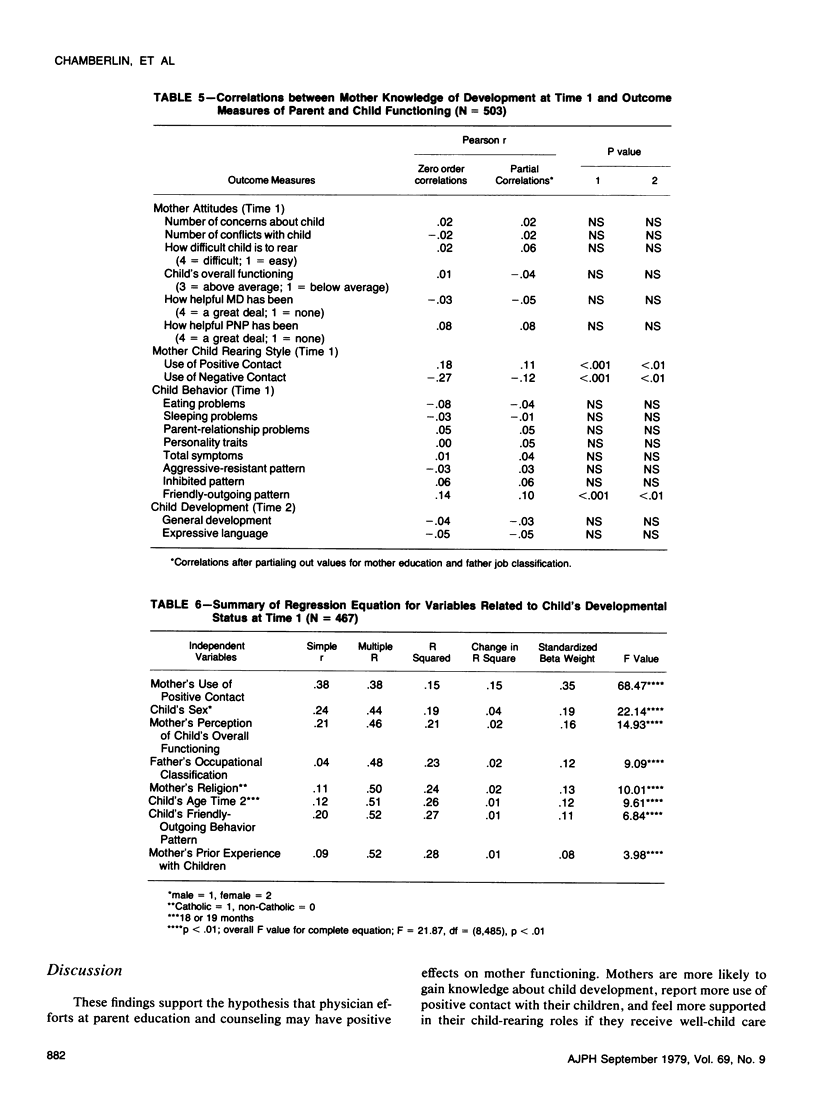
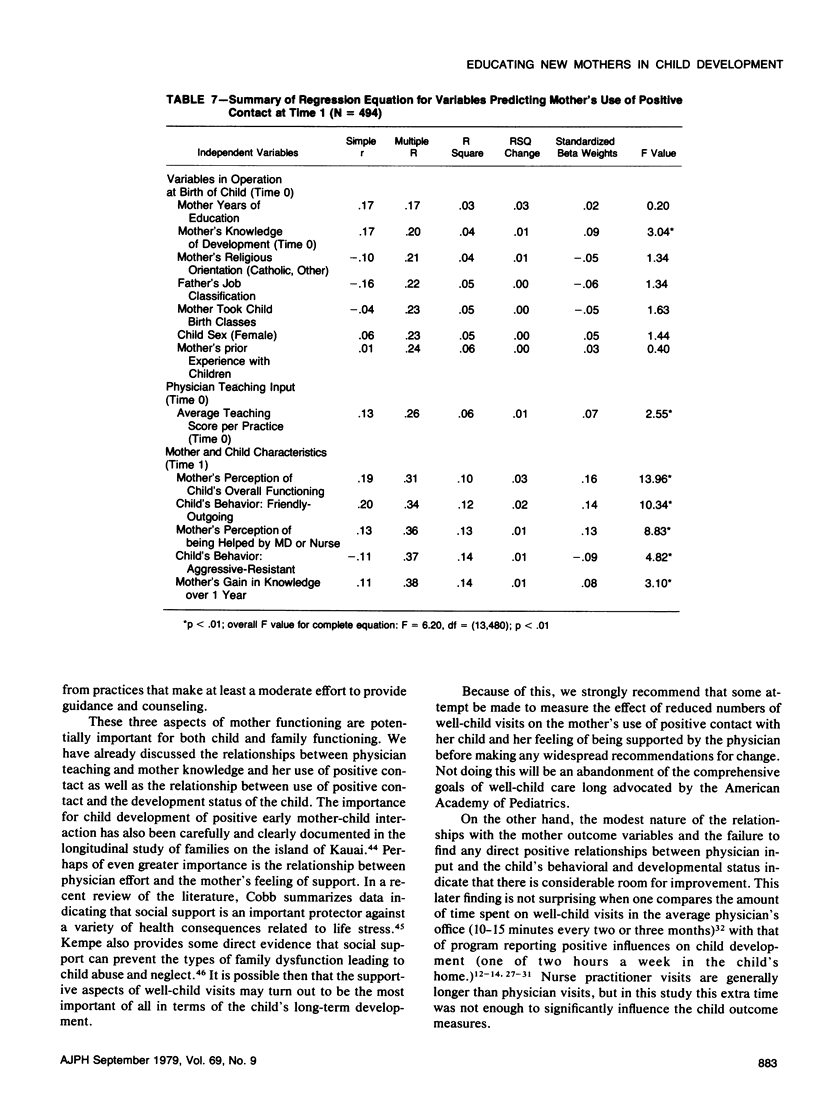
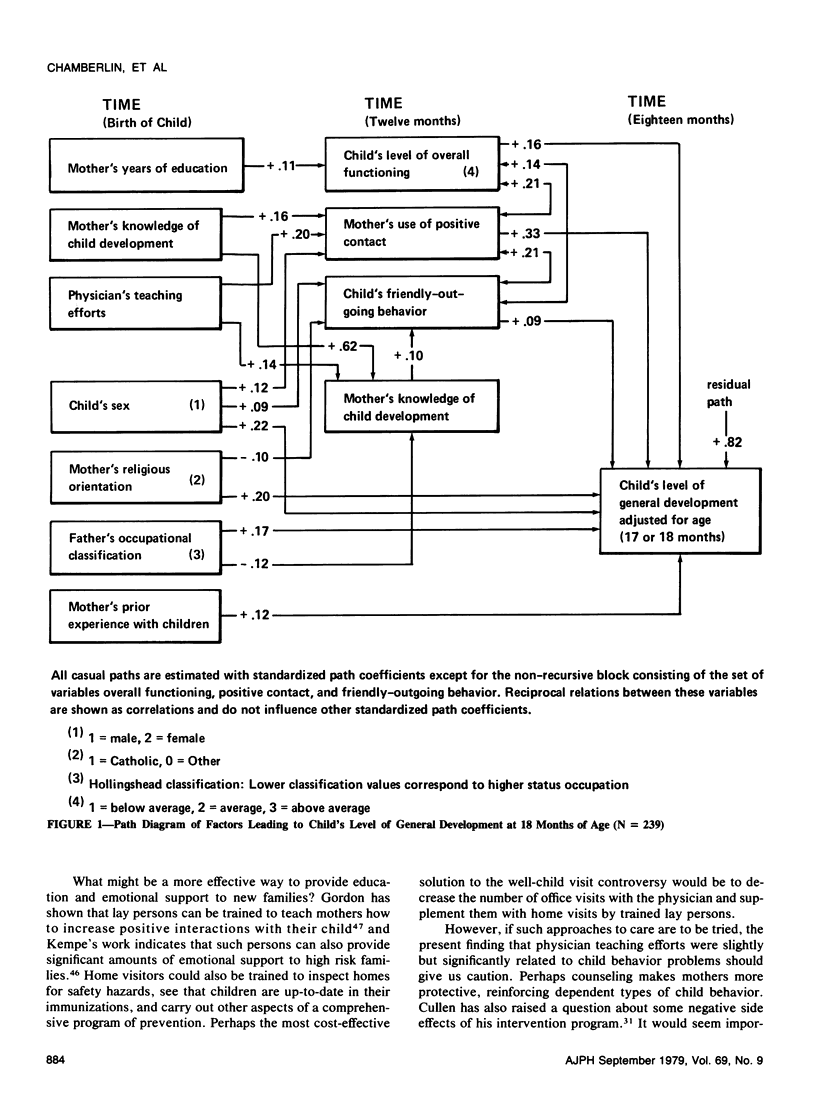
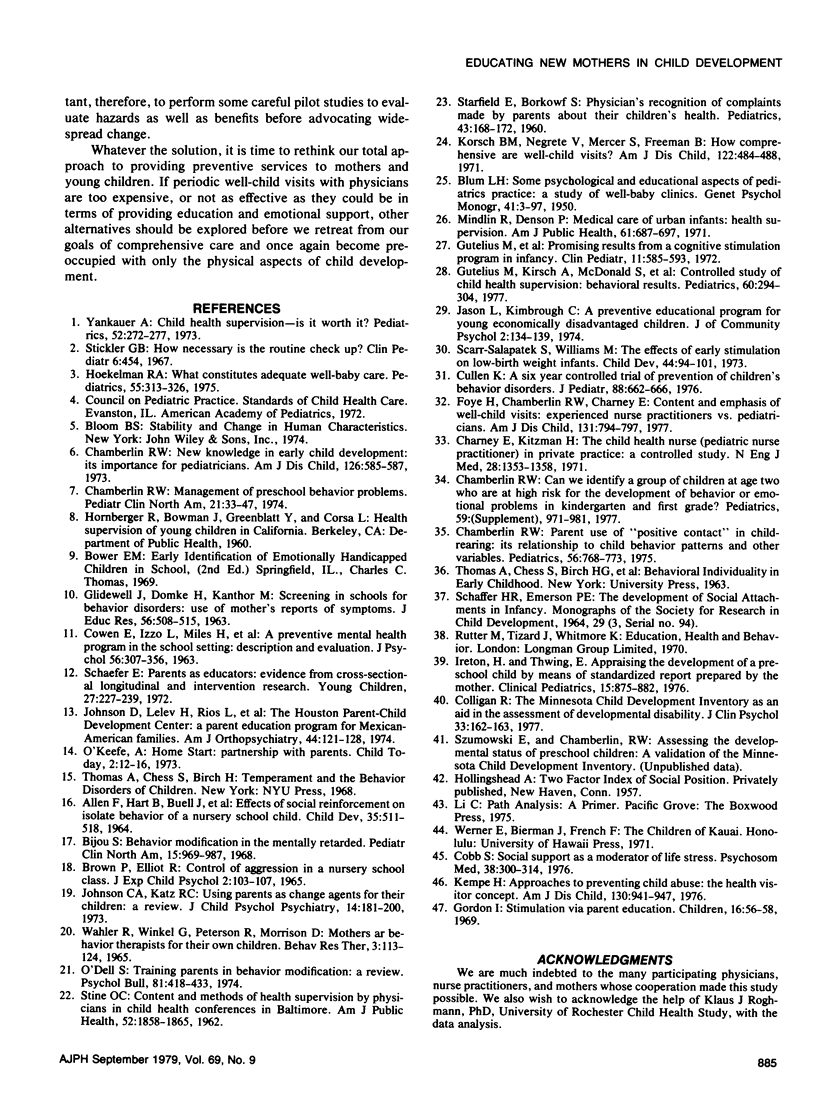
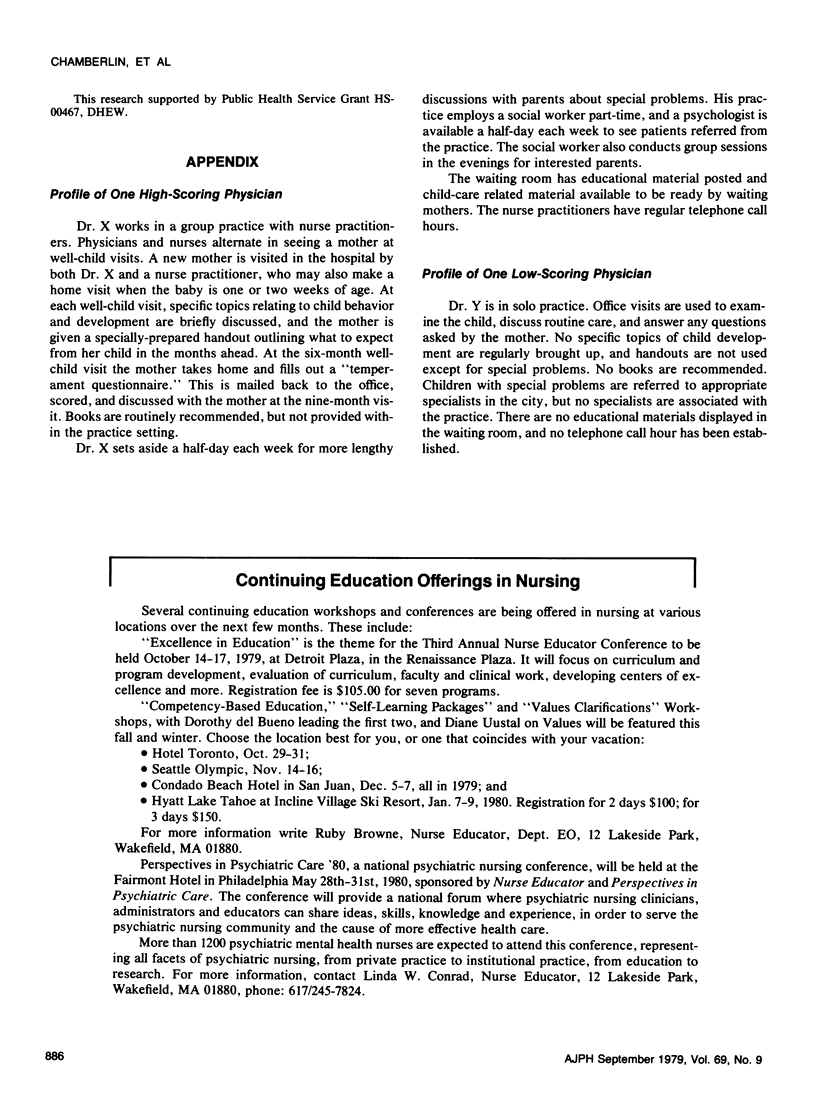
Selected References
These references are in PubMed. This may not be the complete list of references from this article.
- ALLEN K. E., HART B., BUELL J. S., HARRIS F. R., WOLF M. M. EFFECTS OF SOCIAL REINFORCEMENT ON ISOLATE BEHAVIOR OF A NURSERY SCHOOL CHILD. Child Dev. 1964 Jun;35:511–518. doi: 10.1111/j.1467-8624.1964.tb05188.x. [DOI] [PubMed] [Google Scholar]
- BLUM L. H. Some psychological and educational aspects of pediatric practice: a study of well-baby clinics. Genet Psychol Monogr. 1950 Feb;41(FIRST):3–97. [PubMed] [Google Scholar]
- Bijou S. W. Behavior modification in the mentally retarded. Application of operant conditioning principles. Pediatr Clin North Am. 1968 Nov;15(4):969–987. doi: 10.1016/s0031-3955(16)32206-4. [DOI] [PubMed] [Google Scholar]
- COWEN E. L., IZZO L. D., MILES H., TELSCHOW E. F., TROST M. A., ZAX M. A PREVENTIVE MENTAL HEALTH PROGRAM IN THE SCHOOL SETTING: DESCRIPTION AND EVALUATION. J Psychol. 1963 Oct;56:307–356. doi: 10.1080/00223980.1963.9916650. [DOI] [PubMed] [Google Scholar]
- Chamberlin R. W. Can we identify a group of children at age 2 who are at high risk for the development of behavior or emotional problems in kindergarten and first grade? Pediatrics. 1977 Jun;59 (Suppl)(6 Pt 2):971–981. [PubMed] [Google Scholar]
- Chamberlin R. W. Management of preschool behavior problems. Pediatr Clin North Am. 1974 Feb;21(1):33–47. doi: 10.1016/s0031-3955(16)32955-8. [DOI] [PubMed] [Google Scholar]
- Chamberlin R. W. New knowledge in early child development. Its importance for pediatricians. Am J Dis Child. 1973 Nov;126(5):585–587. doi: 10.1001/archpedi.1973.02110190475001. [DOI] [PubMed] [Google Scholar]
- Chamberlin R. W. Parental use of "positive contact" in child-rearing: its relationship to child behavior patterns and other variables. Pediatrics. 1975 Nov;56(5):768–773. [PubMed] [Google Scholar]
- Cobb S. Presidential Address-1976. Social support as a moderator of life stress. Psychosom Med. 1976 Sep-Oct;38(5):300–314. doi: 10.1097/00006842-197609000-00003. [DOI] [PubMed] [Google Scholar]
- Colligan R. C. The Minnesota Child Development Inventory ad an aid in the assessment of developmental disability. J Clin Psychol. 1977 Jan;33(1):162–163. doi: 10.1002/1097-4679(197701)33:1+<162::aid-jclp2270330135>3.0.co;2-x. [DOI] [PubMed] [Google Scholar]
- Cullen K. J. A six-year controlled trial of prevention of children's behavior disorders. J Pediatr. 1976 Apr;88(4 Pt 1):662–667. doi: 10.1016/s0022-3476(76)80032-7. [DOI] [PubMed] [Google Scholar]
- Foye H., Chamberlin R., Charney E. Content and emphasis of well-child visits. Experienced nurse practitioners vs pediatricians. Am J Dis Child. 1977 Jul;131(7):793–797. [PubMed] [Google Scholar]
- Guteilus M. F., Kirsch A. D., MacDonald S., Brooks M. R., McErlean T. Controlled study of child health supervision: behavioral results. Pediatrics. 1977 Sep;60(3):294–304. [PubMed] [Google Scholar]
- Gutelius M. F., Kirsch A. D., MacDonald S., Brooks M. R., McErlean T., Newcomb C. Promising results from a cognitive stimulation program in infancy. A preliminary report. Clin Pediatr (Phila) 1972 Oct;11(10):585–593. doi: 10.1177/000992287201101012. [DOI] [PubMed] [Google Scholar]
- Hoekelman R. A. What constitutes adequate well-baby care? Pediatrics. 1975 Mar;55(3):313–326. [PubMed] [Google Scholar]
- Ireton H., Thwing E. Appraising the development of a preschool child by means of a standardized report prepared by the mother. The Minnesota Child Development Inventory. Clin Pediatr (Phila) 1976 Oct;15(10):875–882. doi: 10.1177/000992287601501004. [DOI] [PubMed] [Google Scholar]
- Johnson C. A., Katz R. C. Using parents as change agents for their children: a review. J Child Psychol Psychiatry. 1973 Sep;14(3):181–200. doi: 10.1111/j.1469-7610.1973.tb01186.x. [DOI] [PubMed] [Google Scholar]
- Johnson D. L., Leler H., Rios L., Brandt L., Kahn A. J., Mazeika E., Frede M., Bisett B. The Houston Parent-Child Development Center: a parent education program for Mexican-American families. Am J Orthopsychiatry. 1974 Jan;44(1):121–128. doi: 10.1111/j.1939-0025.1974.tb00876.x. [DOI] [PubMed] [Google Scholar]
- Kempe C. H. Approaches to preventing child abuse. The health visitors concept. Am J Dis Child. 1976 Sep;130(9):941–947. doi: 10.1001/archpedi.1976.02120100031005. [DOI] [PubMed] [Google Scholar]
- Korsch B. M., Negrete F., Mercer A. S., Freemon B. How comprehensive are well child visits? Am J Dis Child. 1971 Dec;122(6):483–488. doi: 10.1001/archpedi.1971.02110060053008. [DOI] [PubMed] [Google Scholar]
- Mindlin R. L., Densen P. M. Medical care of urban infants: health supervision. Am J Public Health. 1971 Apr;61(4):687–697. doi: 10.2105/ajph.61.4.687. [DOI] [PMC free article] [PubMed] [Google Scholar]
- O'Dell S. Training parents in behavior modification: a review. Psychol Bull. 1974 Jul;81(7):418–433. doi: 10.1037/h0036545. [DOI] [PubMed] [Google Scholar]
- O'Keefe R. A. Home Start: partnership with parents. Child Today. 1973 Jan-Feb;2(1):12–16. [PubMed] [Google Scholar]
- STINE O. C. Content and me hod of health supervision by physicians in child health conferences in Baltimore, 1959. Am J Public Health Nations Health. 1962 Nov;52:1858–1865. doi: 10.2105/ajph.52.11.1858. [DOI] [PMC free article] [PubMed] [Google Scholar]
- Scarr-Salapatek S., Williams M. L. The effects of early stimulation on low-birth-weight infants. Child Dev. 1973 Mar;44(1):94–101. [PubMed] [Google Scholar]
- Starfield B., Borkowf S. Physicians' recognition of complaints made by parents about their children's health. Pediatrics. 1969 Feb;43(2):168–172. [PubMed] [Google Scholar]
- Stickler G. B. How necessary is the "routine check-up"? Clin Pediatr (Phila) 1967 Aug;6(8):454–454. doi: 10.1177/000992286700600802. [DOI] [PubMed] [Google Scholar]
- Wahler R. G., Winkel G. H., Peterson R. F., Morrison D. C. Mothers as behavior therapists for their own children. Behav Res Ther. 1965 Sep;3(2):113–124. doi: 10.1016/0005-7967(65)90015-x. [DOI] [PubMed] [Google Scholar]
- Yankauer A. Child health supervision--is it worth it? Pediatrics. 1973 Aug;52(2):272–279. [PubMed] [Google Scholar]


